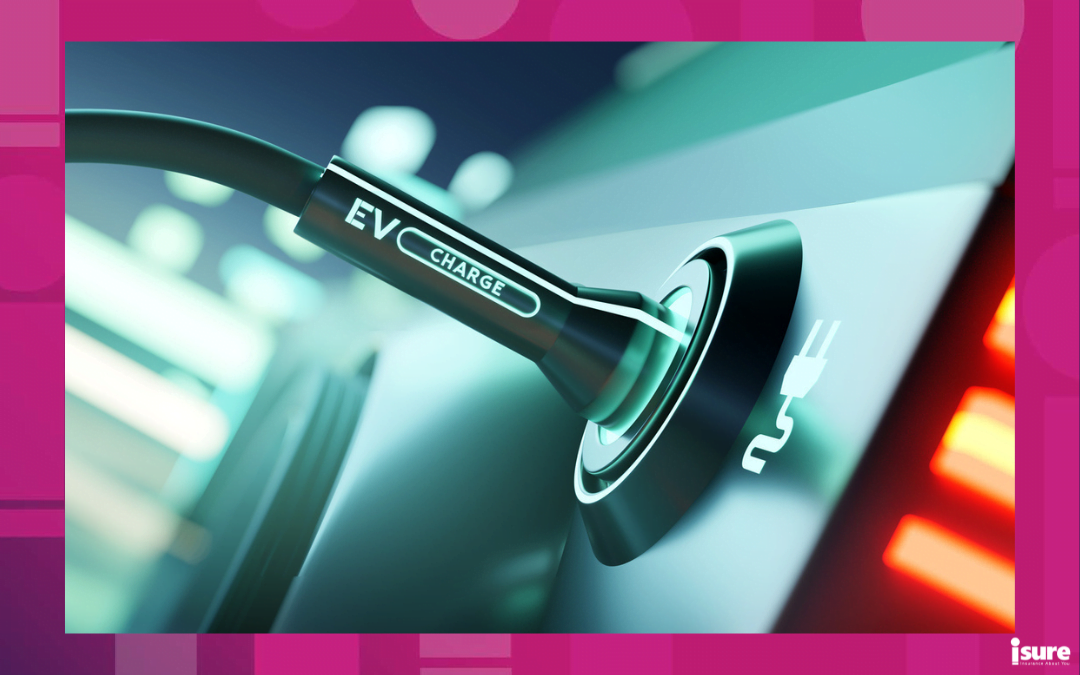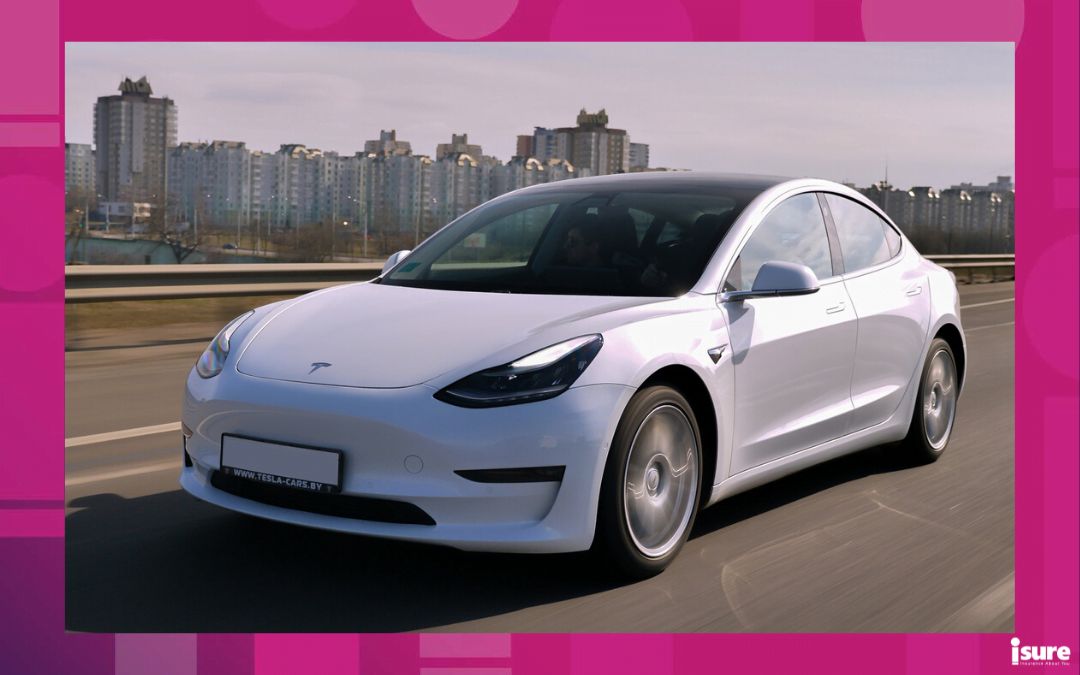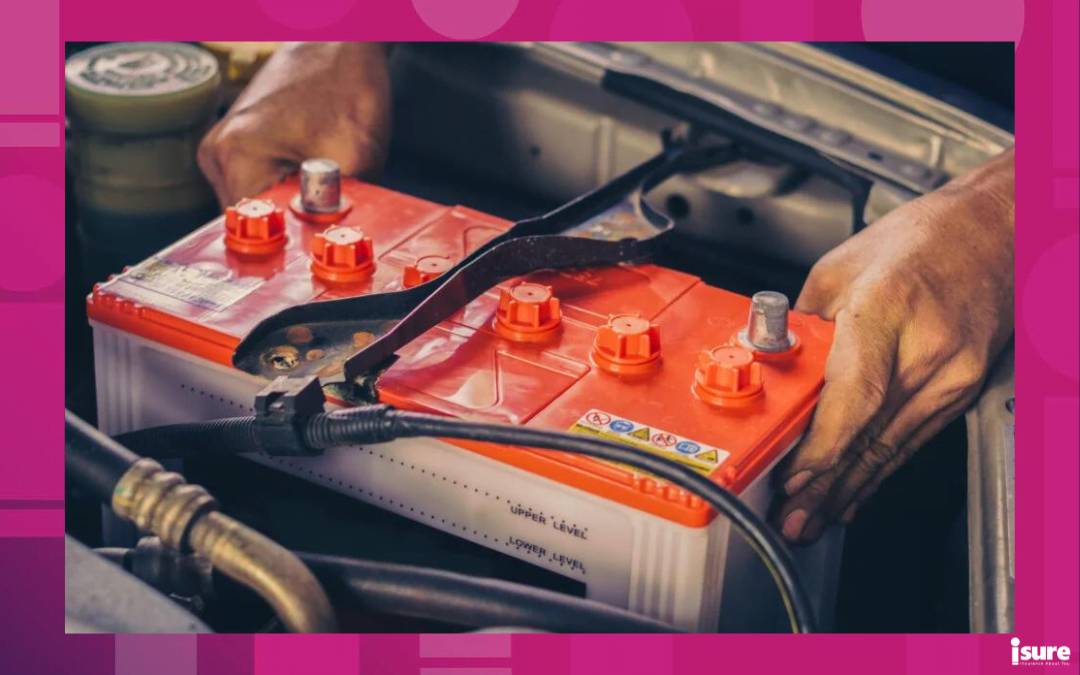Nowadays, there is an abundance of lithium batteries that are used in our everyday lives. From our cell phones and tools to our electric vehicles, it’s safe to say lithium batteries are crucial. But, what happens to them when they need to be disposed of? With new cell phones coming out so quickly, where do the batteries in our old cell phones go? Luckily, isure has everything you need to know about lithium batteries, how they’re recycled, and how much they’ll cost to replace.
How much do electric vehicle batteries cost to replace?
With battery technology improving at a rapid rate, the cost of EV batteries is dropping and is expected to continue. With that said, the average cost of a battery for your electric vehicle is far from cheap.
It is difficult to pinpoint the exact cost of replacing your battery. Similar to gas-powered vehicles, the price of parts will fluctuate based on the make and model of your car. Generally, the cost of replacing your EV’s battery is anywhere between $2,500 to $20,000. This is a huge jump in comparison to gas-powered vehicles, which average about $350 for a battery replacement. Hybrid vehicle models, like the Toyota Prius, require smaller battery packs, therefore being generally less expensive to replace than a Tesla Model S. As electric vehicles begin to become more popular, the price will inevitably drop. With this being said, a new battery pack can also be completely free if your vehicle is still under warranty.
According to The Department of Energy’s Vehicle Technology Office, the overall price of EV lithium-ion battery packs declined by roughly 90% between 2008 and 2022. On top of this, they are expected to drop a further 70% by 2025, according to a recent study by McKinsey & Company.
How often will your EV battery need replacement?
With the cost of replacing an electric vehicle’s battery being quite expensive, you may be hesitant to make that purchase of the electric vehicle you have always wanted. However, the average owner of a plug-in hybrid or electric vehicle will rarely have to replace the battery pack in the period of them owning the vehicle. With the average warranty on EV lithium-ion battery packs being 15-20 years, or 100,000 to 200,000 miles, the average person will likely be turning in their vehicle for a new one before having to replace the battery. Interestingly enough, this is longer than the average life expectancy of a car, which is only 12 years. This means that the average electronic vehicle battery is predicted to outlast the vehicle it is put into.
As mentioned before you can rest easy knowing that most manufacturers of electronic vehicles offer a warranty of around 8-10 years for their vehicle’s battery packs. This way, if anything unexpected happens, it will likely be replaced free of cost.
Why should you recycle car batteries?
Let’s face it: practically everyone has a smartphone these days. Furthermore, the popularity of electric vehicles is constantly growing. With these purchase increases comes the pile of recycled lithium batteries that once powered these devices. Unfortunately, this means more lithium batteries are sitting in landfills. The importance of recycling these batteries is similar to recycling your everyday plastics. When you recycle your batteries, you reduce your environmental footprint by reducing your CO-2 footprint, as well as nitrogen-oxide and sulphur-oxide emissions.
On top of this, specialists have stated that by recycling your batteries, you greatly contribute to recovering expensive materials made to use them in the first place. From there, more can be made. Two of the main materials used in batteries, nickel and cobalt, are very expensive, and these prices have fluctuated greatly over the years. It has been proven that if these materials get recovered from used batteries, they can be reused and offer the same benefits as a new battery.
Recycling batteries is also crucial since current mining operations cannot extract enough lithium to keep up with the demand. On top of this, mining lithium is a year-long effort that creates tons of environmental headaches, such as a depletion of local water sources.
How are lithium batteries recycled?
To fully understand the importance of recycling lithium batteries, we must first understand the recycling process. When a battery is no longer used, it becomes donated and “shredded” at one of the many battery recycling plants around the globe. An example of one of these recycling plants is Li-Cycle, a battery recycling plant located in Gilbert, Arizona. The most common method of recycling these batteries involves first dismantling the battery and separating it from the plastic. This allows the plastic parts of the battery to be recycled separately. From there, the remaining parts of the battery become shredded and melted down or dissolved in acid. The result of melting the remaining battery part leaves us with a “black mass.” This is a pitch-black, soil-like substance that consists of chemical elements that can be salvaged. This black mass is then used to create brand-new lithium batteries.
In some instances, after the battery is shredded, the less expensive bits are removed and recycled separately. This allows the black mass to be strictly cathode material. This is then put into acid to remove any impurities. From there, fresh elements are added. These ingredients include nickel and cobalt, to ensure the ratio of ingredients is up to par.
How to properly recycle your EV batteries
When it comes to recycling your lithium batteries, it is important to make sure you are doing so safely and properly. When you have devices you no longer need, make sure to follow these tips to make sure your batteries are recycled properly and safely!
- Make sure your batteries are safely prepared for recycling. When you’re done with your electronics, remove the battery if possible. Proceed to put your battery in a plastic bag and then put it in a storage container. In many cases, batteries that appear dead can contain a residual charge. This can pose a fire hazard if they are not bagged or taped. It is important to make sure you recycle your batteries within six months. While you are waiting to recycle your battery, make sure it is stored in a safe, cool, dry area.
- Make sure your battery is not swollen or bulging. If you find the battery of your device is bulging, you should immediately put it in a nonflammable material such as sand or kitty litter and store it in a cool place. Do not remove the battery until it has shrunk. Make sure to not throw the battery away since this is a huge fire hazard.
- Do not throw your batteries in the recycling bin! It is crucial to make sure they are not with other recyclables such as paper, plastic, or glass. This does not pose a huge fire hazard in your recycling bin, but this can also cause fires at the recycling facility.
Hopefully, with the help from isure, you understand the importance of recycling your batteries! Next time you are upgrading your phone or laptop, make sure you properly recycle! Do your part in keeping the environment clean and healthy!




